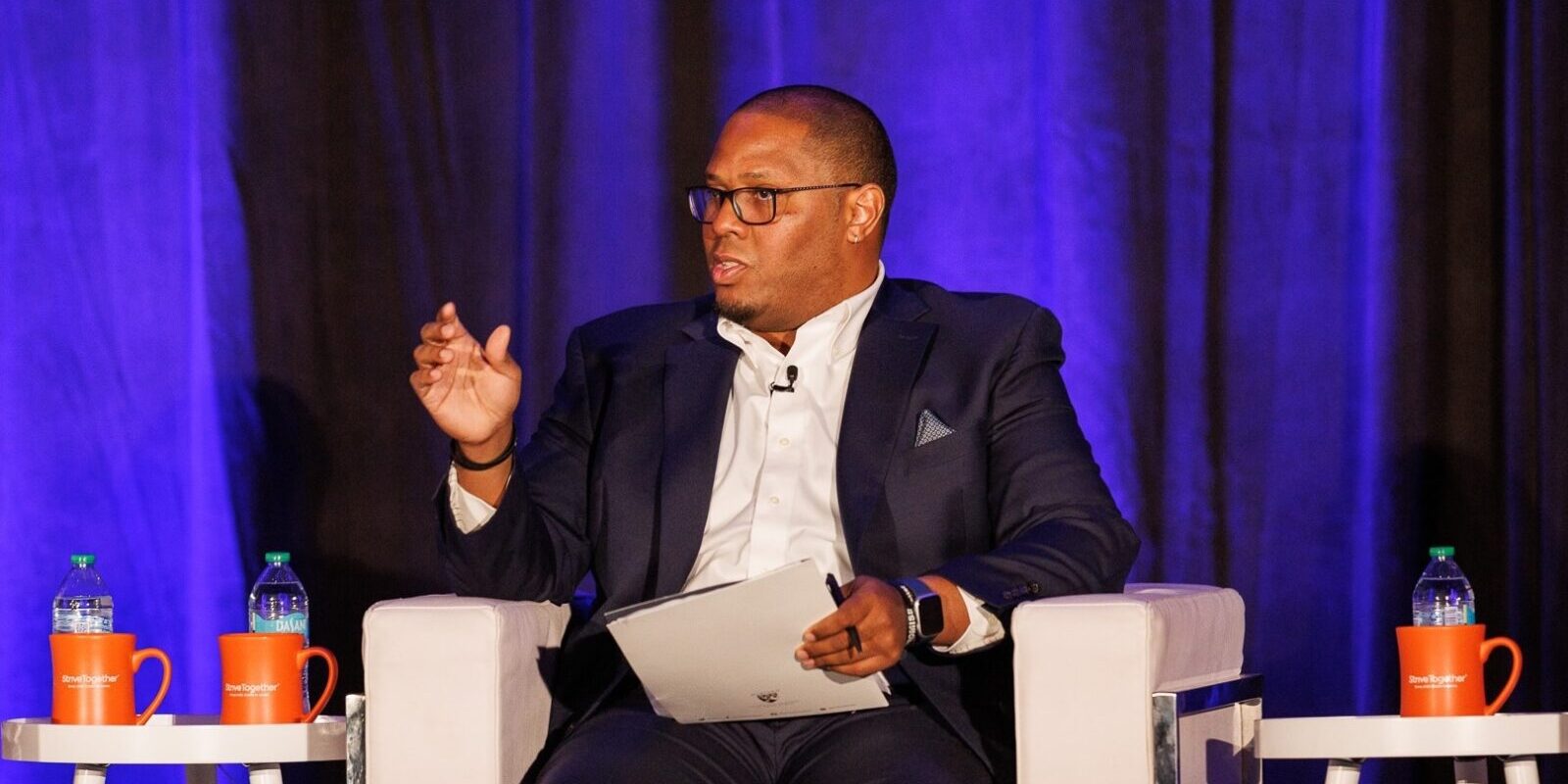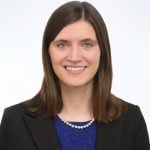StriveTogether is expanding our board of directors with four new members. These new members are leaders in the fields of education, philanthropy, place-based partnerships and justice.
StriveTogether is a network of community organizations that join together neighbors, including youth and families, nonprofits, businesses, schools and more, to work toward a future where youth can thrive in their shared communities. Joining the StriveTogether board of directors are:
- Tomi Hiers, vice president of the Center for Civic Sites and Community Change at The Annie E. Casey Foundation
- Samantha Mellerson, executive director at the Haywood Burns Institute
- Rob Watson, executive director of EdRedesign and lecturer on education at the Harvard Graduate School of Education
- Todd Williams, founding chairman and CEO of The Commit Partnership
Get to know our new board members:
What does economic mobility mean for your community?
Todd Williams, The Commit Partnership: In a region that is a national leader in job growth but also in young adult poverty, it means that substantially more of our own students can lead fulfilling lives and participate in the amazing prosperity of the Dallas region. It means our employers can fill their job needs more quickly. It means our social safety net costs are reduced. It means that place and family income and race no longer predict our outcomes. In Dallas, we are absolutely, relentlessly focused on maximizing the talents and life potential of every child within our community.
Samantha Mellerson, the Haywood Burns Institute: For me, economic mobility is synonymous with access to opportunity. Opportunities that go beyond traditional notions of economic mobility but include all aspects that contribute to quality of life, such as security, a sense of belonging and happiness. All the things that each of us want for our own children and should therefore want for each other’s children. If we could create equitable access to these opportunities, we would unlock a level of human potential we have never seen before. Then, we could dare to dream!
Rob Watson, the EdRedsign Lab at the Harvard Graduate School of Education: Economic mobility is my why. In the neighborhood I grew up in (the Northside of the City of Poughkeepsie, New York), low-income black males earn $14,000 as adults and have about a 50% likelihood of being incarcerated at some point in their life. This work is about ensuring that race, place and income don’t determine who we get to be in life and what’s possible for us to aspire to.
At the community level, I think the North Star of greater economic mobility provides an unparalleled opportunity to unify communities across lines of difference; just about everyone wants their children to have the resources, exposure, caring adults and enrichment opportunities they need to thrive. This is an intergenerational project.
In the community I’m from, what we’re chasing isn’t just about creating more pathways to the middle-class; it’s about transforming our civic life and democracy. Leveling the playing field requires cultivating a critical mass of citizens and institutions committed to shifting mental models disillusioned by the tragedy of place to a new paradigm that sees the limitless potential of place when we invest in our people, their schools, the built environment, public health, community wealth creation, and the full cradle-to-career continuum.
Why are you joining the StriveTogether board of directors?
Tomi Hiers, The Annie E. Casey Foundation: I joined Baltimore’s Promise as the organization’s first chief executive officer in 2014 — the same year the organization became a member of the StriveTogether network. Supporting collective action around community-driven solutions and systems change is a critical ingredient for lasting impact. I support this work in my current role at the Annie E. Casey Foundation, and I’m excited for the opportunity to broaden my support as a StriveTogether board member.
Samantha Mellerson, the Haywood Burns Institute: As the co-leader of a racial justice organization, cross-sector systems change has been at the forefront of my work. The intersection of racial justice and economic mobility is a critical issue that requires deep partnership to achieve the systemic change needed to create a society where all people can thrive. In joining the StriveTogether board, my hope is to amplify the efforts of those committed to making a more just and equitable tomorrow. I want to pour into people and movement spaces, lending my strengths and skills, while also learning from others and creating space to be innovative and audacious, together.
Rob Watson, the EdRedsign Lab at the Harvard Graduate School of Education: I’m on a mission to be a part of organizations and movements that aim to eliminate intergenerational poverty, transform democracy and advance racial equity. StriveTogether is an organization and network that embodies those same commitments.
Over the last several years, I’ve had the pleasure of cultivating relationships with many communities and their leaders across the StriveTogether network; I believe the work they’re doing is an antidote to many of the intractable challenges we’re dealing with in our communities and the deep divisiveness our country is facing on the national stage. I also have the pleasure of being a co-founder and board chair of a StriveTogether network member in my hometown of Poughkeepsie, New York, the Poughkeepsie Children’s Cabinet.
StriveTogether’s big bet on civic infrastructure could not be more important at this unique moment in our nation’s history. I’m honored to contribute to the cradle-to-career movement in this new capacity.
Tell us about someone who supported you on your own cradle-to-career journey.
Samantha Mellerson, the Haywood Burns Institute: My cradle-to-career journey is deeply rooted in community. I am the product of many people, places, and cultures, spanning generations and shaped by strong ancestral guidance. I am who I am because they were who they were. This journey is ongoing, and I am committed to honoring it and contributing my part every step of the way.
Todd Williams, The Commit Partnership: During my freshman year at Austin College — a place I attended on nearly full financial aid — I met a young professor who grew up in the same neighborhood as I did. He introduced me to the idea of business school, guided me on where to apply, and helped me understand what that path could mean for me and my family. At a time when I lacked belief in myself and didn’t even know such opportunities existed, he opened doors I didn’t know existed. Today, 46 years later, he is still teaching and mentoring, annually awarding a fellowship I established in his name. He had a profound impact on my path.
What’s a hobby you have that might surprise people?
Tomi Hiers, The Annie E. Casey Foundation: I’m a pop culture enthusiast! I watch movies all the way through the credits to read the actors who played each character and the song titles. I scan IMDB when I recognize an actor from a television show and review album song notes to find out the names of background singers, writers and producers. I know the most random pop culture facts! I put my knowledge to the test a few years ago with two friends when we competed on VH1’s World Series of Pop Culture game show (go team Fra-Gi-Lay!). While we didn’t win, it was an incredible experience.
What’s a job you’ve held that might surprise people?
Todd Williams, The Commit Partnership: Early in my career, I worked part-time on the stat crew for the Dallas Mavericks, sitting midcourt at every home game. From that seat, I had a front-row view as legends like Michael Jordan, Magic Johnson and Larry Bird waited to check into the game right in front of me. At the time, I was paid $35 per game for a role I would have done for free. Those seats, now worth $3,000 a night, are no longer occupied by the stat crew, thanks to a smart decision by team ownership. But for three unforgettable years, I had one of the best jobs in sports.
Rob Watson, the EdRedsign Lab at the Harvard Graduate School of Education: Living and working in Paraguay for almost eight years, first as a Peace Corps Volunteer and then as a practitioner supporting youth development, education and anti-poverty efforts nationwide and across the region. I often say that I wish all Americans had the opportunity to spend some of their formative years living and working in a community that’s radically different from their own. It changes you forever. Having the opportunity to build relationships and explore my passions thousands of miles from where I grew up, learning from and building with the Paraguayan people, is an experience for which I’m eternally grateful.






